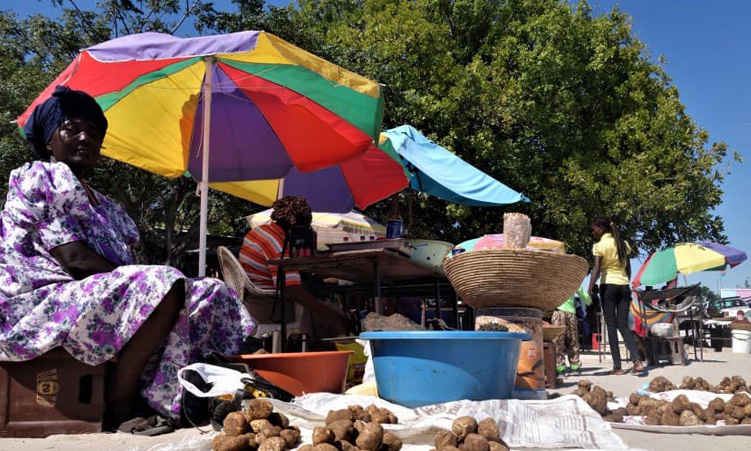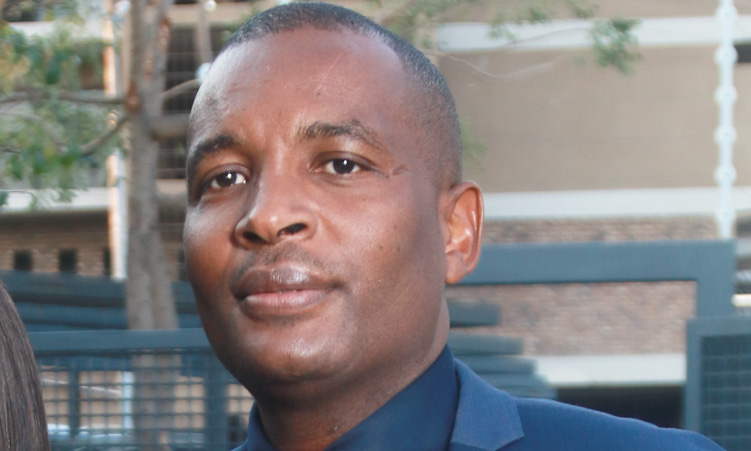THE City Council of the Bavarian capital Munich has decided to change the name of what has been called Von Trotha Street.
The coalition of the Social Democratic Party (SPD) and the Green Party passed a motion on Thursday to change the name to Herero Street. The two major opposition parties in Munich, the conservative Christian Social Union (CSU) and the liberal party FDP, voted against the motion.The initiative for this name change was started in June 2003 by a councillor of the Green Party, Siegfried Benker.He felt it was a shame for Munich to still have a street bearing the name of a man who was notorious for the extermination order he issued on October 2, 1904.General Lothar von Trotha, who served as German Governor from 1904 to 1905, was one of the key figures of the German genocide committed against the Herero and Nama people in Namibia.At the commemoration of the battle Hamakari in August 2004 the German Minister for Technical Cooperation and Development, Heidemarie Wieczorek-Zeul (SPD), apologised for the German genocide and she made mention of Von Trotha.Referring to the atrocities that took place under his command, she said that if the genocide had occurred now, Von Trotha would have had to face trial and “would be sentenced”.During the debate in the Munich City Council the chief whip of the CSU, Hans Podiuk, justified the use of the name ‘Von Trotha’, saying the street name is not meant to honour General Von Trotha but the entire family.He referred to a decision of 1993.However, if ordinary Germans see the name ‘Von Trotha’ they automatically think of the notorious General.Many young Germans do not even know the name Von Trotha.The older generation, particularly when they saw the junction of Von Trotha and Waterberg Street, immediately thought of General von Trotha.When officials of the Nazi Party in 1933 named the street after Von Trotha, the General was widely regarded as a colonial hero.CSU councillor Podiuk expressed his party’s view that if the street had to change its name he would not be in favour of the name Herero Street.Without mentioning any names, he referred to historians who claimed the Hereros, long before the arrival of the Germans, had committed genocide against the San people.This statement caused an emotional reaction on the part of Green councillor Benker.He accused the CSU of trying to portray the Hereros as perpetrators in order to distract attention from the German colonial crimes.All houses in Munich carry a visible plate on which the name of the street is written, and so all houses in the former Von Trotha Street will need new signs.The costs for the name change to ‘Herero Street’ will be covered by the City Council.* Meanwhile, in Germany’s capital Berlin, a seminar on possible ways of making reparations to the Herero and Nama people will be held on October 13 and 14.The seminar is convened by Hueseyin Aydin of the Left party, together with the Rosa Luxemburg Foundation.Namibian MP Arnold Tjihuiko, as representative of Chief Kuaima Riruako, and Rudolph Hongoze of the secretariat of the six Herero royal houses have confirmed their participation.Aydin was invited by Chief Riruako to address this year’s Herero Day.The two major opposition parties in Munich, the conservative Christian Social Union (CSU) and the liberal party FDP, voted against the motion.The initiative for this name change was started in June 2003 by a councillor of the Green Party, Siegfried Benker.He felt it was a shame for Munich to still have a street bearing the name of a man who was notorious for the extermination order he issued on October 2, 1904.General Lothar von Trotha, who served as German Governor from 1904 to 1905, was one of the key figures of the German genocide committed against the Herero and Nama people in Namibia.At the commemoration of the battle Hamakari in August 2004 the German Minister for Technical Cooperation and Development, Heidemarie Wieczorek-Zeul (SPD), apologised for the German genocide and she made mention of Von Trotha.Referring to the atrocities that took place under his command, she said that if the genocide had occurred now, Von Trotha would have had to face trial and “would be sentenced”.During the debate in the Munich City Council the chief whip of the CSU, Hans Podiuk, justified the use of the name ‘Von Trotha’, saying the street name is not meant to honour General Von Trotha but the entire family.He referred to a decision of 1993.However, if ordinary Germans see the name ‘Von Trotha’ they automatically think of the notorious General.Many young Germans do not even know the name Von Trotha.The older generation, particularly when they saw the junction of Von Trotha and Waterberg Street, immediately thought of General von Trotha.When officials of the Nazi Party in 1933 named the street after Von Trotha, the General was widely regarded as a colonial hero.CSU councillor Podiuk expressed his party’s view that if the street had to change its name he would not be in favour of the name Herero Street.Without mentioning any names, he referred to historians who claimed the Hereros, long before the arrival of the Germans, had committed genocide against the San people.This statement caused an emotional reaction on the part of Green councillor Benker.He accused the CSU of trying to portray the Hereros as perpetrators in order to distract attention from the German colonial crimes.All houses in Munich carry a visible plate on which the name of the street is written, and so all houses in the former Von Trotha Street will need new signs.The costs for the name change to ‘Herero Street’ will be covered by the City Council.* Meanwhile, in Germany’s capital Berlin, a seminar on possible ways of making reparations to the Herero and Nama people will be held on October 13 and 14.The seminar is convened by Hueseyin Aydin of the Left party, together with the Rosa Luxemburg Foundation.Namibian MP Arnold Tjihuiko, as representative of Chief Kuaima Riruako, and Rudolph Hongoze of the secretariat of the six Herero royal houses have confirmed their participation.Aydin was invited by Chief Riruako to address this year’s Herero Day.
Stay informed with The Namibian – your source for credible journalism. Get in-depth reporting and opinions for
only N$85 a month. Invest in journalism, invest in democracy –
Subscribe Now!






